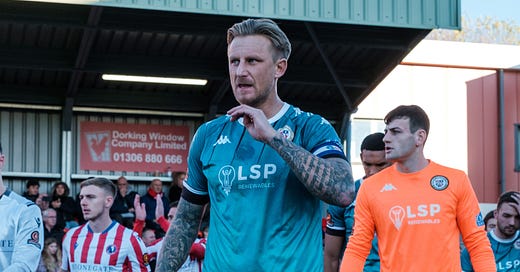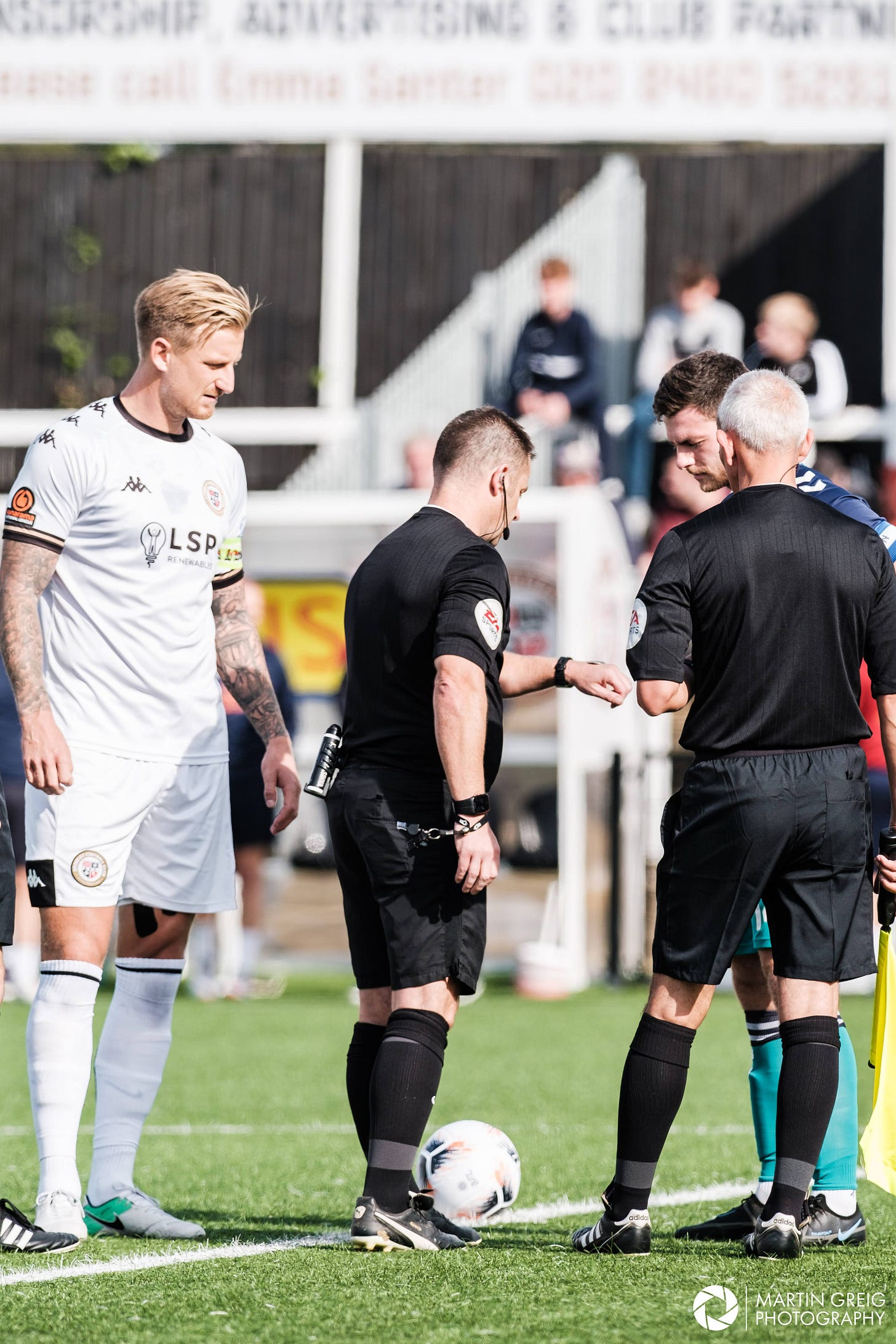Bromley have been fortunate to have several excellent captains in my time as a fan. From Frank Coles to Rob Swaine and Jack Holland, there are players who, at various times, have been a living embodiment of what the club is trying to achieve.
We all have our favourite, but it’s likely that your favourite will coincide with your happiest period as a Bromley supporter. Consequently, for many fans, that person will be the club’s current captain, Byron Webster.
There can be no doubt that Byron embodies the modern Bromley Football Club. His work ethic and winner’s mentality sets the tone for the whole club, from the youth teams to the first team, and is a big reason why he has three Wembley wins on his résumé: playoff winners medals for Yeovil Town and Millwall and, of course, last year’s FA Trophy win with Bromley.
Some say that we overstate the captain’s role in this country. In other cultures, the armband automatically goes to the oldest or most-capped player in the side. But this is one overseas influence that has yet to permeate our game. Overstated or not, having a ‘leader’ seems integral to British football’s DNA.
Possibly the best way to think about captaincy is that you notice a good captain and the influence they have. There are very few Bromley fans who wouldn’t argue that Rob Swaine’s captaincy, particularly the way he led from the front, was a big reason why Bromley won the National League South title in 2014/15.
Likewise, Byron Webster’s influence and leadership speak volumes on the pitch. Is he loud? Yes. Does he bring more to the role than that? Most certainly. Some players are captains in name only, but others are locker-room leaders. Next time you’re at a Bromley game, do a personal player cam on Byron and you’ll see what I mean.
Clearly, this wasn’t lost on the chairman and the manager, as they both gave him their Player of the Season award for 2021/22. It was a decision that spoke to the small intangibles that matter on and off the pitch. These are things that fans won’t always see but that contribute greatly to the culture of the dressing room. You can't win trophies and achieve success without the right culture, and a good captain goes a long way toward instilling positive values.
With this in mind, I spoke with Byron Webster this past Saturday to talk about his career, but also how he views the role of captaincy in the modern era.
Have a listen to the interview and let me know what you think in the comments below.
Thanks for taking the time to read the article and listening to the interview with Byron Webster.
All articles are edited by Peter Etherington you can link to him here
Please note all photographs in this article are by Martin Greig please follow him on Twitter here
If you havent as yet make sure you read the other articles in the archive.
If you’d like to show an appreciation for the work that goes into this newsletter you can buy me a coffee through the link below.
You can also find Machel St Patrick Hewitt on Twitter - here
Most importantly of all subscribe to the newsletter to ensure you get these updates direct to your inbox.






I've always thought a captain should be a centre back or a defensive midfield player , they are usually vocal & combative & good organisers. Byron is one of best captains I have seen, consistent & leads by example .Like Rob Swaine big & brave but with extra quality in my opinion.
Nice one Mash